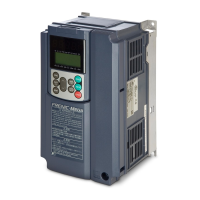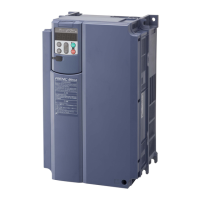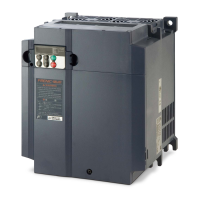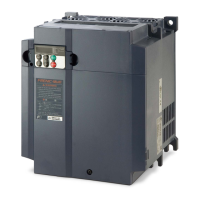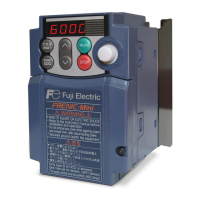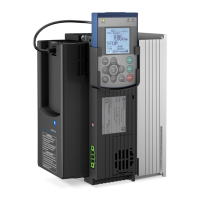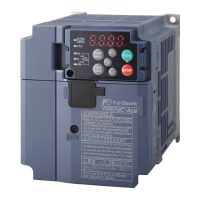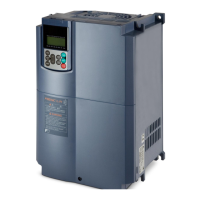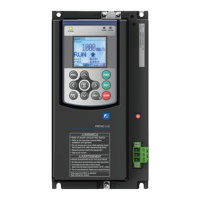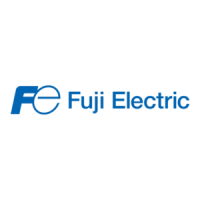4.8 Configuring Function Codes for Drive Controls
4-17
Configuring the function codes of motor parameters
If using “V/f control with sensor (F42* = 3)”, it is necessary to set the basic function codes below.
Configure the function codes listed below according to the motor ratings and design values of the machine. For the
motor ratings, check the ratings printed on the motor's nameplate. For design values of the machine, ask system
integrators or machine manufacturers about them.
For details on how to modify the function code data, see Chapter 3 “3.4.1 Setting up function codes “Data
Setting””.
(1) Setting motor basic constants
Table 4.8-3
Motor rating
(printed on the nameplate of the
motor)
Please refer to Table 4.4-1 Initial
value for each destination
Rated voltage at base
frequency 1
0: Fuji standard motors, 8-series
2: Fuji dedicated motors for vector
control
3: Non-standard motors, motors of
other companies
5: Fuji premium efficiency motors
Applicable motor capacity
Standard applicable motor
capacity
Machine design values
(Note) For the test run of the motor,
increase values so that they are longer
than your machine design values.
If the specified time is short, the
inverter may not run the motor properly.
Please refer to Table 4.4-1 Initial
value for each destination
Acceleration time 1
(Note)
FRN0115G2S-2G/FRN0060G2■
-4G or below: 6.00 (s)
FRN0146G2S-2G/FRN0075G2■
-4G or above: 20.00 (s)
Deceleration time 1
(Note)
(2) Initializing motor constants
After setting the basic motor constants, initialize (H03 = 2) motor 1 with function code H03.
Necessary motor constant related function codes are automatically set. Refer to Chapter 5 "5.3.5 H codes (High
performance functions)" for details.
Changing P02* will automatically change P03*, P06* to P13*, P16* to P20*, P53*, P55*, P56*, and H46,
and therefore caution is advised.
If using control functions such as auto torque boost, torque calculation value monitoring, auto energy
saving, torque limiting, anti-regenerative control, auto search, slip compensation, torque vectors, droop
control, and overload stop function, it is necessary to set the appropriate motor constants.
In any of the following cases, the full control performance may not be obtained from the inverter because
the motor parameters differ from the factory defaults, so perform auto-tuning.
- The driven motor is a non-Fuji or a Fuji non-standard one.
- The wiring distance between the inverter and the motor is too long (generally 20 m (65.6 ft) or more).
- A reactor is installed between the inverter and the motor.
Refer to “4.8.1 [ 5 ] Induction motor tuning method“ if performing tuning.
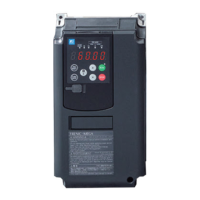
